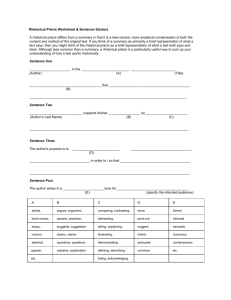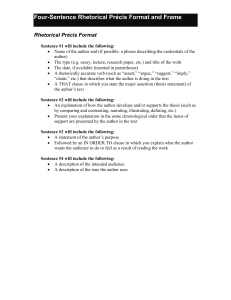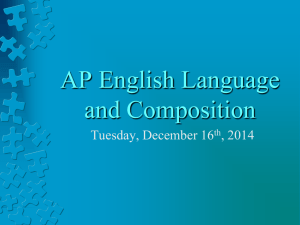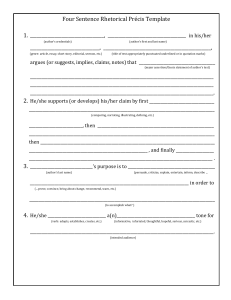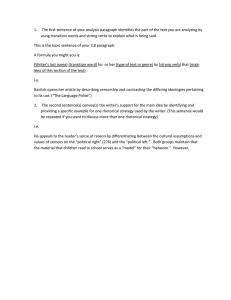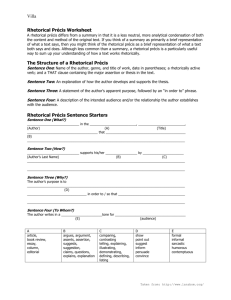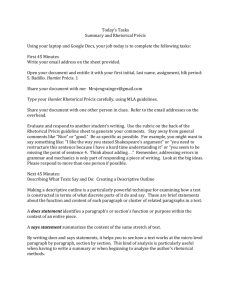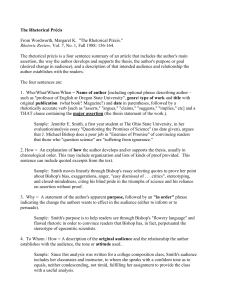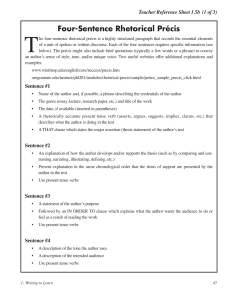The Rhetorical Précis rhetorical précis
advertisement
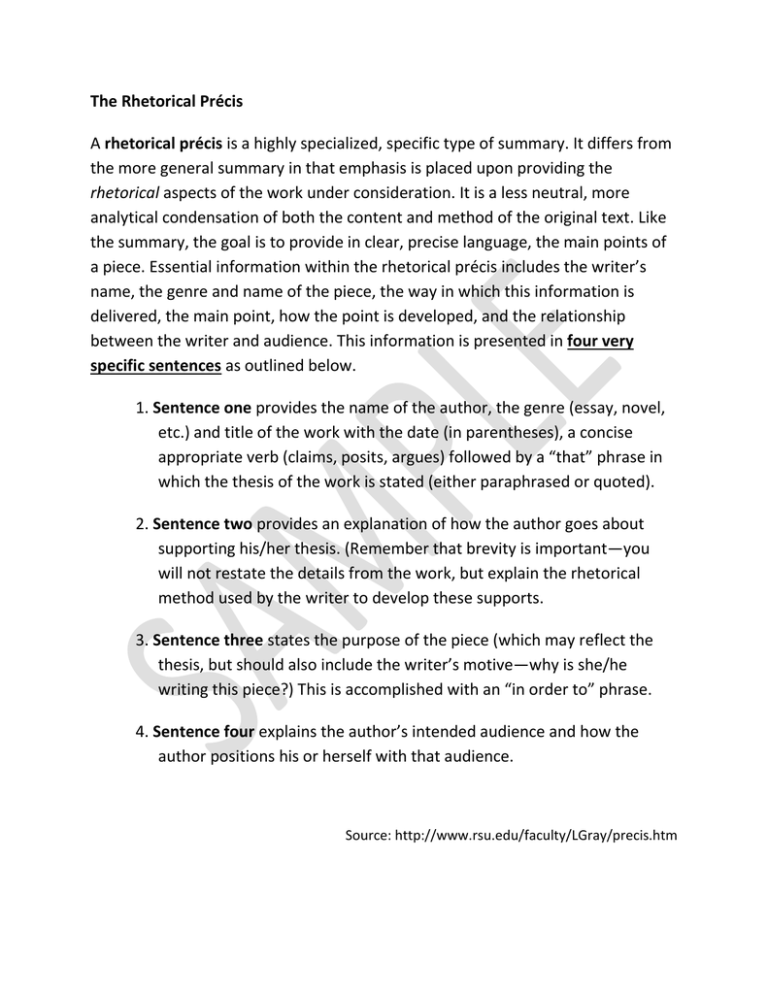
The Rhetorical Précis A rhetorical précis is a highly specialized, specific type of summary. It differs from the more general summary in that emphasis is placed upon providing the rhetorical aspects of the work under consideration. It is a less neutral, more analytical condensation of both the content and method of the original text. Like the summary, the goal is to provide in clear, precise language, the main points of a piece. Essential information within the rhetorical précis includes the writer’s name, the genre and name of the piece, the way in which this information is delivered, the main point, how the point is developed, and the relationship between the writer and audience. This information is presented in four very specific sentences as outlined below. 1. Sentence one provides the name of the author, the genre (essay, novel, etc.) and title of the work with the date (in parentheses), a concise appropriate verb (claims, posits, argues) followed by a “that” phrase in which the thesis of the work is stated (either paraphrased or quoted). 2. Sentence two provides an explanation of how the author goes about supporting his/her thesis. (Remember that brevity is important—you will not restate the details from the work, but explain the rhetorical method used by the writer to develop these supports. 3. Sentence three states the purpose of the piece (which may reflect the thesis, but should also include the writer’s motive—why is she/he writing this piece?) This is accomplished with an “in order to” phrase. 4. Sentence four explains the author’s intended audience and how the author positions his or herself with that audience. Source: http://www.rsu.edu/faculty/LGray/precis.htm Natalia Leyva Ms. Coelho ENG4U1-09 21 September 2014 Rhetorical Précis In the article, “End Homework Now” (2001), psychologists Etta Kralovec and John Buell claim that the practice of assigning homework is not an effective teaching method because its negative effects outweigh its benefits. Kralovec and Buell support their claims by providing examples of how homework disrupts families, overburdens children and limits learning and by dispelling myths about the benefits of homework and providing alternative practices that would lead to improvement in student achievement. The authors’ purpose is to make the reader question a practice that has become a cornerstone of provincial education systems and decide whether it is conducive to creating a “smarter” student. The authors are writing for the entire educational community: administrators, teachers, students and parents. Taken from: http://www.lanzbom.org/
